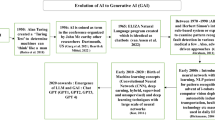Abstract
This paper explores the utilization of Large Language Models (LLMs) in Multi-Agent Systems (MAS) in scenarios where the agents are expected to collaborate and negotiate their preferences, creating temporary alliances to achieve a common goal (complex task). MAS have been acknowledged for their potential in facilitating collaboration to solve complex problems. However, widespread adoption of MAS is impeded by challenges related to defining communication languages and developing frameworks that balance specificity for complex use cases with general applicability across different domains. The emergence of LLMs, such as GPT-4, presents a novel approach to MAS, offering advanced natural language processing capabilities that (potentially) circumventing the need for explicit communication language definitions. This paper proposes an MAS implementation utilizing LLMs within the Autogen framework, emphasizing collaboration and negotiation among agents, through a case study involving a product manufacturing scenario where agents are tasked with intricate decision-making. Results from three test scenarios demonstrate the efficacy of this approach, that can be used to enhance further developments in MAS scenarios of application. However, despite the promise, challenges remain, including the cost of running LLMs and the need for further exploration of their capabilities.
Access this chapter
Tax calculation will be finalised at checkout
Purchases are for personal use only
Similar content being viewed by others
References
Agostini, L., Filippini, R.: Organizational and managerial challenges in the path toward industry 4.0. Eur. J. Innov. Manage. 22, 406–421 (2019)
Aknine, S., Pinson, S., Shakun, M.F.: A multi-agent coalition formation method based on preference models. Group Decis. Negot. 13(6), 513–538 (2004). https://doi.org/10.1007/s10726-005-3074-5
Allen, J., Galescu, L., Teng, C.M., Perera, I.: Conversational agents for complex collaborative tasks. AI Mag. 41(4), 54–78 (2020). https://doi.org/10.1609/aimag.v41i4.7384
Cardoso, R.C., Ferrando, A.: A review of agent-based programming for multi-agent systems. First Comput. 10(2), 16 (2021). https://doi.org/10.3390/computers10020016
Chang, Y., et al.: A survey on evaluation of large language models. ACM Trans. Intell. Syst. Technol. 15(3), 1–45 (2024). https://doi.org/10.1145/3641289
Finin, T., McKay, D., Fritzson, R.: An overview of kqml: a knowledge query and manipulation language (1992)
Friedman, L., et al.: Leveraging large language models in conversational recommender systems. arXiv.org (2023). https://doi.org/10.48550/ARXIV.2305.07961
Horling, B., Lesser, V.: A survey of multi-agent organizational paradigms. Knowl. Eng. Rev. 19(4), 281–316 (2004). https://doi.org/10.1017/s0269888905000317
Lau, H.C., Zhang, L.: Task allocation via multi-agent coalition formation: taxonomy, algorithms and complexity. In: Proceedings. 15th IEEE International Conference on Tools with Artificial Intelligence, pp. 346–350. TAI-03, IEEE Comput. Soc (2003). https://doi.org/10.1109/tai.2003.1250210
Nori, H., King, N., McKinney, S.M., Carignan, D., Horvitz, E.: Capabilities of gpt-4 on medical challenge problems. null (2023). https://doi.org/10.48550/ARXIV.2303.13375
O’Brien, P.D., Nicol, R.C.: Fipa—towards a standard for software agents. BT Technol. J. 16, 51–59 (1998)
Olsen, T., Tomlin, B.: Industry 4.0: Opportunities and challenges for operations management. Manuf. Serv. Oper. Manage. 22, 113–122 (2020)
Sarkar, S., Curado Malta, M., Dutta, A.: A survey on applications of coalition formation in multi-agent systems. Concurrency Comput. Pract. Exp. 34(11), e6876 (2022). https://doi.org/10.1002/cpe.6876
Singhal, K., et al.: Towards expert-level medical question answering with large language models. arXiv.org (2023). https://doi.org/10.48550/ARXIV.2305.09617
Soon, G.K., On, C.K., Anthony, P., Hamdan, A.R.: A review on agent communication language. Computational Science and Technology: 5th ICCST 2018, Kota Kinabalu, Malaysia, 29–30 August 2018 pp. 481–491 (2019)
Stone, P., Veloso, M.: Multiagent systems: a survey from a machine learning perspective. Auton. Robot. 8(3), 345–383 (2000). https://doi.org/10.1023/a:1008942012299
Wang, L., Lyu, C., Ji, T., Zhang, Z., Yu, D., Shi, S., Tu, Z.: Document-level machine translation with large language models. In: Conference on Empirical Methods in Natural Language Processing (2023). https://doi.org/10.48550/ARXIV.2304.02210
Wang, S., Wan, J., Zhang, D., Li, D., Zhang, C.: Towards smart factory for industry 4.0: a self-organized multi-agent system with big data based feedback and coordination. Comput. Netw. 101, 158–168 (2016). https://doi.org/10.1016/j.comnet.2015.12.017
Wooldridge, M., Jennings, N.R.: Intelligent agents: theory and practice. Knowl. Eng. Rev. 10(2), 115–152 (1995). https://doi.org/10.1017/s0269888900008122
Wu, Q., et al.: Autogen: enabling next-gen llm applications via multi-agent conversation framework (2023)
Zhao, W.X., et al.: A survey of large language models, March 2023. https://doi.org/10.48550/ARXIV.2303.18223
Acknowledgements
This work has been supported by national funds through FCT – Fundação para a Ciência e Tecnologia (Portuguese Foundation for Science and Technology) through the Projects UIDB/04728/2020, UIDP/04728/2020, and the Ricardo Barbosa doctoral Grant with the reference UI/BD/154187/2022. The work of Paulo Novais is supported through the Project UIDB/00319/2020.
Author information
Authors and Affiliations
Corresponding author
Editor information
Editors and Affiliations
Rights and permissions
Copyright information
© 2025 The Author(s), under exclusive license to Springer Nature Switzerland AG
About this paper
Cite this paper
Barbosa, R., Santos, R., Novais, P. (2025). Collaborative Problem-Solving with LLM: A Multi-agent System Approach to Solve Complex Tasks Using Autogen. In: González-Briones, A., et al. Highlights in Practical Applications of Agents, Multi-Agent Systems, and Digital Twins: The PAAMS Collection. PAAMS 2024. Communications in Computer and Information Science, vol 2149. Springer, Cham. https://doi.org/10.1007/978-3-031-73058-0_17
Download citation
DOI: https://doi.org/10.1007/978-3-031-73058-0_17
Published:
Publisher Name: Springer, Cham
Print ISBN: 978-3-031-73057-3
Online ISBN: 978-3-031-73058-0
eBook Packages: Artificial Intelligence (R0)




